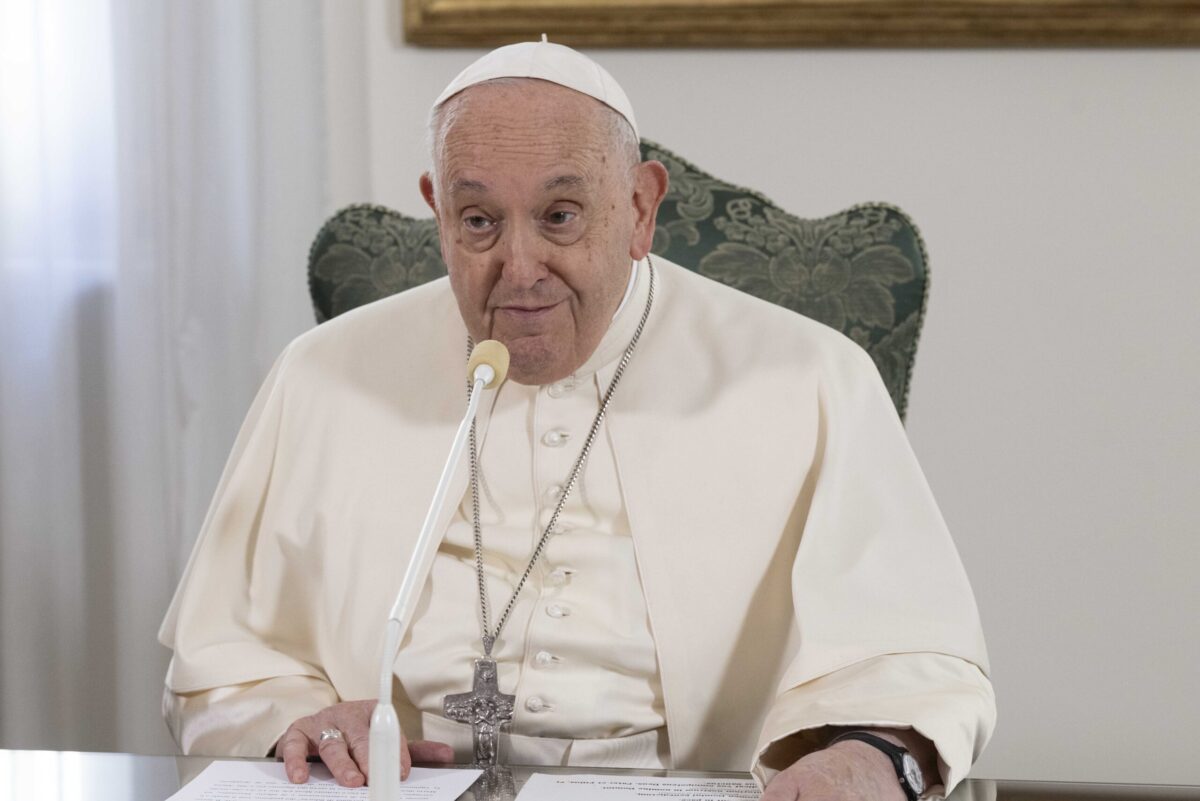By Cindy Wooden
VATICAN CITY (CNS) — The Advent call for “vigilance” does not mean staying awake and watchful out of fear, but rather out of a longing for the coming of the Lord, Pope Francis wrote.
Sometimes people think of vigilance “as an attitude motivated by fear of impending doom, as if a meteorite were about to plunge from the sky,” he said in the text of his commentary on the Gospel reading for Dec. 3, the first Sunday of Advent.
Pope Francis led the recitation of the Angelus prayer from his residence, the Domus Sanctae Marthae, but explained that his bronchitis, while improving, was still making it difficult to speak so the text of his commentary and of his appeals for peace were read by Msgr. Paolo Braida, an official of the Vatican Secretariat of State.
In the Gospel reading, Mk 13:33-37, Jesus tells the parable of the servants awaiting their master’s return.
“The servants’ vigilance is not one of fear, but of longing, of waiting to go forth to meet their Lord who is coming,” the pope’s text said. “They remain in readiness for his return because they care for him, because they have in mind that when he returns, they will make sure he finds a welcoming and orderly home.”
That kind of vigilance and expectation should mark the watchfulness of Christians as they prepare to welcome Jesus at Christmas, to welcome him at the end of time and, he said, to welcome him “as he comes to meet us in the Eucharist, in his word (and) in our brothers and sisters, especially those most in need.”
Pope Francis encouraged people to carefully prepare their hearts with prayer and with charity.
“A good program for Advent,” he suggested, would be “to encounter Jesus coming in every brother and sister who needs us and to share with them what we can: listening, time, concrete assistance.”
Advent, he said, also is a good time to “approach his forgiveness” through the sacrament of reconciliation and make more time for prayer and Bible reading.
Remaining vigilant may take practice, he said, and starts by not letting oneself be distracted by “pointless things” and by trying not to complain so much.







